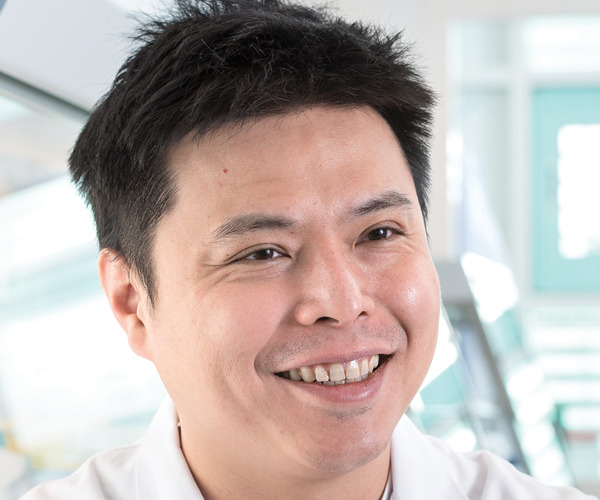

Researchers led by Ludwig Lausanne’s Ping-Chih Ho and Yi-Ru Yu—along with Sheue-Fen Tzeng and Chin-Hsien Tsai, former postdocs in the Ho lab who now lead their own labs at Taipei Medical University in Taiwan—identified in an April publication in Cancer Discovery a specific mode of fat uptake by immune cells within tumors that serves as a metabolic checkpoint against anti-cancer immune responses. They also reported their preclinical development and assessment of a humanized antibody to dismantle that barrier for cancer immunotherapy. This antibody, PLT012, binds and blocks the activity of CD36, a transporter of lipids that is expressed by immune cells in acidic and fat-enriched tumor microenvironments. The influx of fat enabled by CD36 induces dysfunction in CD8+ T cells while bolstering the activity of immunosuppressive cells such as myeloid-derived suppressor cells and regulatory T cells. PLT012 undermines this metabolic checkpoint to restore anti-tumor immunity in mouse models of hepatocellular carcinoma (HCC) as well as in models of liver metastases of colon cancer. Ping-Chih, Yi-Ru and colleagues showed the antibody reshapes the immune landscape of tumors isolated from HCC patients, suggesting it is likely to replicate its effects in humans. Studies in monkeys and mice suggested it has an excellent safety profile.
PLT012, a Humanized CD36-Blocking Antibody, Is Effective for Unleashing Antitumor Immunity Against Liver Cancer and Liver Metastasis
Cancer Discovery, 2025 April 28